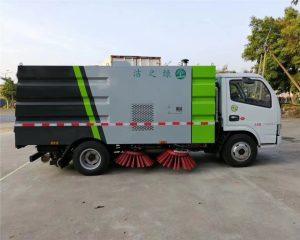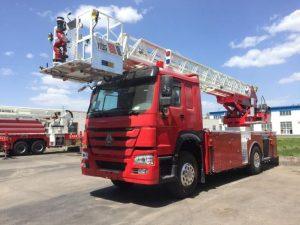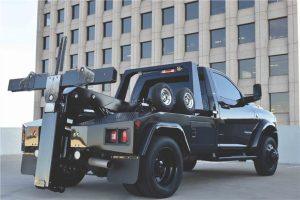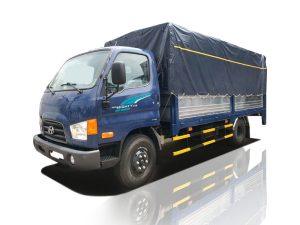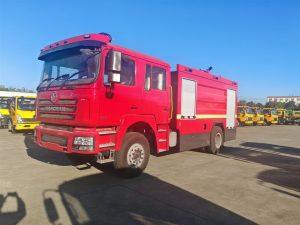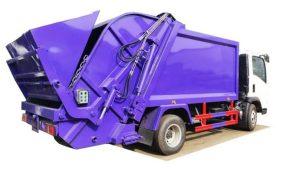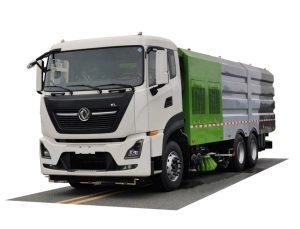Monday to Saturday - 8:00 -17:30
Everything You Need to Know About Non CDL Garbage Trucks
Non CDL garbage trucks are essential vehicles for waste management, especially for small to mid-sized businesses and municipalities. These trucks provide a flexible and cost-effective option for organizations that need to transport waste without the complexity of a commercial driver’s license (CDL). In this article, we will explore the various aspects of non CDL garbage trucks, from their benefits and types to operational tips, maintenance, and frequently asked questions.
The Basics of Non CDL Garbage Trucks
What is a Non CDL Garbage Truck?
A non CDL garbage truck is a vehicle designed for waste collection and disposal that weighs less than 26,001 pounds. Because of this weight classification, drivers are not required to hold a commercial driver’s license, making it accessible for many businesses and individuals.
Benefits of Non CDL Garbage Trucks
- Ease of Use: Drivers can operate these trucks without a CDL, making it easier for municipalities and small businesses to train operators.
- Cost-Effective: Non CDL trucks tend to be less expensive to purchase and maintain.
- Versatility: These trucks can be used for a variety of waste types, including residential, commercial, and construction debris.
- Environmental Impact: Utilizing non CDL trucks may encourage local waste management initiatives, leading to better recycling and waste disposal practices.
Types of Non CDL Garbage Trucks
Standard Rear Loader
The standard rear loader is the most common type of non CDL garbage truck. It features a hydraulic system that compresses the waste at the back of the truck and can typically carry from 8 to 12 cubic yards of waste.
Advantages of Rear Loaders
- Large capacity for residential waste collection
- Easy to operate and maintain
Side Loader
Side loaders are designed for single-operator use, allowing the driver to control the loading mechanism from the driver’s seat. This efficiency makes them particularly popular for residential waste collection where quick stop-and-go operations are needed.
Advantages of Side Loaders
- Increased safety due to reduced manual lifting
- Ability to navigate narrow streets easily
Roll-off Trucks
Roll-off trucks are equipped with a container system that allows for easy loading and unloading. These trucks are perfect for construction sites and large projects.
Advantages of Roll-Off Trucks
- High capacity for large waste loads
- Flexible for different types of waste containers
Choosing the Right Non CDL Garbage Truck
Capacity Considerations
The capacity of non CDL garbage trucks is crucial for operational efficiency. Assess the volume of waste you will be collecting regularly and choose a truck that accommodates your needs.
Fuel Type
Non CDL garbage trucks typically run on diesel or gasoline. Consider fuel efficiency and availability in your area when choosing your truck.
Features to Look For
- Safety Features: Look for trucks with advanced safety equipment such as back cameras, sensors, and braking technology.
- Comfort: The cabin should be comfortable, with adequate visibility and control ergonomics.
- Durability: Ensure the truck is built to withstand rough handling and various waste types.
Operational Tips for Running a Non CDL Garbage Truck
Training Drivers
While a CDL is not required, operators should still be trained effectively. Focus on safe driving practices, waste handling, and emergency procedures.
Regular Maintenance
Routine maintenance is critical for operational efficiency. Keep a checklist that includes oil changes, brake checks, tire rotation, and more.
Efficient Route Planning
Plan your routes strategically to optimize fuel consumption and time. Utilize GPS and mapping tools to avoid congested areas and improve efficiency.
Waste Management Best Practices
Implement recycling and disposal best practices to minimize landfill impact. Partner with local recycling facilities to ensure responsible waste management.
Cost of Non CDL Garbage Trucks
Initial Purchase Price
The price of non CDL garbage trucks can range from $20,000 to $150,000 depending on the brand, model, and features. Budget accordingly for your needs.
Operating Costs
| Cost Type | Estimated Monthly Cost |
|---|---|
| Fuel | $500 – $1,000 |
| Insurance | $150 – $300 |
| Maintenance | $200 – $500 |
Environmental Considerations
Waste Reduction Strategies
Employ strategies such as composting, recycling, and waste diversion programs to minimize waste output. Education and community involvement can enhance these efforts.
Impact of Non CDL Garbage Trucks on the Environment
Using non CDL trucks for waste collection can lead to reduced emissions and fuel consumption, particularly if electric options become available. Analyze the long-term benefits of investing in environmentally friendly technologies.
Frequently Asked Questions (FAQ)
What types of waste can a non CDL garbage truck collect?
Non CDL garbage trucks can collect various types of waste, including residential refuse, commercial waste, recyclables, and construction debris.
Do I need special training to drive a non CDL garbage truck?
While you don’t need a CDL, it’s beneficial to have operational training focused on safety, waste handling, and navigation.
Are non CDL garbage trucks fuel-efficient?
Fuel efficiency varies by model, but many modern non CDL garbage trucks are designed to maximize fuel economy.
Can non CDL garbage trucks be used for recycling?
Yes, these trucks can be customized for dual-use, allowing for both waste and recyclable collection.
What is the typical lifespan of a non CDL garbage truck?
With proper maintenance, a non CDL garbage truck can last anywhere from 10 to 15 years, or even longer based on usage.
Where can I purchase a non CDL garbage truck?
You can purchase non CDL garbage trucks from specialized dealers, online marketplaces, and sometimes through municipal auctions.


